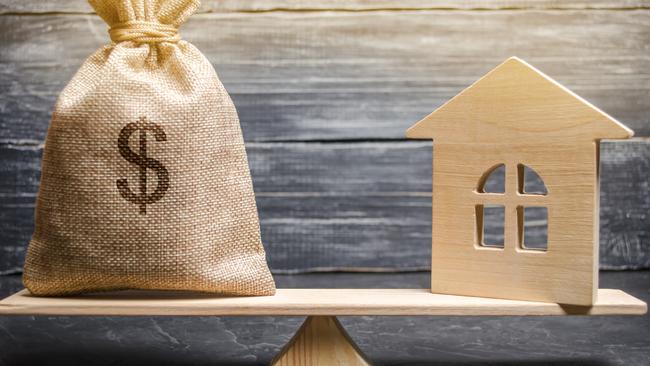Superannuation or housing? Don’t choose one when you need both
Superannuation or housing wealth? Aussies shouldn’t have to choose, and these tips can help you get richer with each of them.

Talk has been getting louder lately about the increasing difficulty of getting a foot in the door of home ownership.
High house prices, often requiring a six-figure deposit from first-home buyers, have combined with rising interest rates since 2022 and surging living costs hitting almost all household bills, to make saving money incredibly tough.
But just as housing seems harder than ever to own, it’s become easier than ever to pump money into your other major life asset: superannuation.
Super savers have more flexibility to make voluntary contributions at any time. The cap for tax-deductible contributions rose from $27,500 to $30,000 in July this year, and compulsory employer payments rose from 11 to 11.5 per cent of your wage from July too.
Housing and super both deliver brilliant tax benefits, and if you want a financially comfortable future, you should aim to invest in both.
Yes, houses are hard to buy. Author and financial adviser Helen Baker says it has never been more difficult – “but difficult doesn’t mean impossible”.
While some retirees have no super – compulsory employer payments only began in the 1990s – even relatively small nest eggs can still deliver handy financial benefits to seniors to complement their age pension. A modest $100,000 super balance at retirement can deliver an extra $200 a fortnight on top of the pension’s $1144 without eating too much into your nest egg.
Super at retirement is tax-free for most people, and owner-occupied housing is effectively the other tax-free asset people can own. Your own home’s value is not included in age pension asset tests, so it can potentially be worth millions and you’ll still get a pension. As for focusing on both to build wealth, consider these strategies, starting with housing:
• Understand all government homebuyer incentives and grants – you may need a much smaller deposit that you think.
• Don’t expect your first home to be your forever home, and consider whether buying an investment property first may work for you.
• Consider co-ownership with siblings or even the Bank of Mum and Dad.
Baker says financial support may also come from grandparents or other relatives. “Support can come in many forms, including money towards the deposit, acting a mortgage guarantor, or buying the property on your behalf – perhaps as an investment for them that you pay off over time,” she says.
For super, people should consider salary-sacrificing some of their wage to benefit from compound interest and tax benefits, making voluntary tax-deductible contributions, and examining government incentives such as co-contributions and spouse contributions.
Sometimes super and housing mix together to build wealth.
Many people own business or residential properties within self-managed super funds, a strategy that potentially helps them avoid paying any capital gains tax if they sell the premises at retirement.
Young first-home savers can use super to help grow a deposit in a more tax-effective way.
The government’s First Home Super Saver Scheme has just been tweaked, as of September 15, for more flexibility, giving people extra time to request a release and the ability to change their mind in certain circumstances.
UniSuper’s technical and strategy support lead, Brooke Logan, says the FHSSS allows first home buyers to access up to $50,000 worth of voluntary contributions to their super, plus calculated associated earnings, to be used for a home deposit.
“Using the FHSSS is also a great way to avoid paying higher tax,” Logan says.
But it is a long-term plan, she says. “You can only save $15,000 per year, so you will need to plan well in advance to make the most of the scheme.
“You can use the FHSSS alongside other measures such as the First Home Owners Grant, provided you satisfy the individual requirements for each scheme.”






To join the conversation, please log in. Don't have an account? Register
Join the conversation, you are commenting as Logout